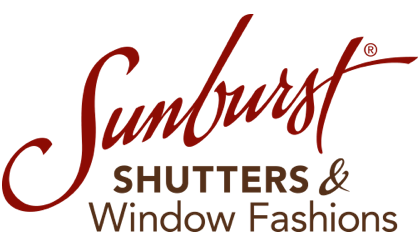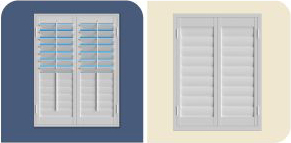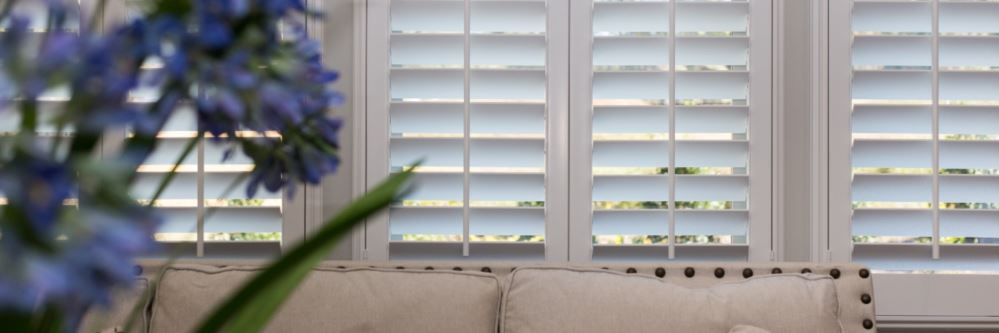
Why Some Homeowners In San Diego Mistake Plantation Blinds For Plantation Shutters
When San Diego homeowners give us a call for a quote, they might accidentally ask for plantation blinds. However plantation blinds isn’t the right name of the window covering they‘re thinking of.
That’s because when people say “plantation blinds”, they actually mean plantation shutters.
Interior shutters are synonymous with the term “plantation”That’s not the case with blinds. And “plantation” describes the style of the window treatment as it relates to the size of the horizontal louvers.
Blinds have thin horizontal slats that are usually called slats. But these slats are not wide enough or thick enough to be considered “plantation” style.
Even some blind companies call blinds “plantation,” but that term has always been associated with interior louvered shutters. Plantation style shutters might look like blinds at a glance. But the differences between these two window treatments are numerous.
How Plantation Shutters Are Different From Blinds
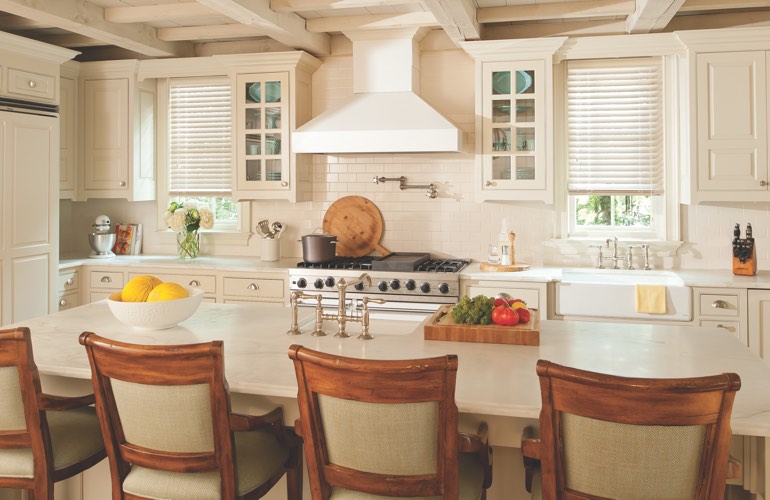
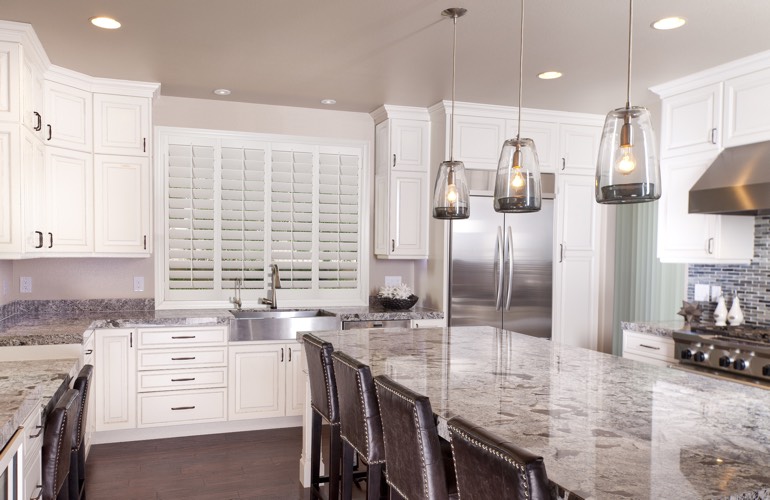
Plantation Shutters Last Longer Than Blinds
Premium plantation shutters can be made from reclaimed wood, synthetic wood, or hardwood. Any of these materials give you a sturdy window treatment that lasts for many more years than a blind. And when you order shutters with UV stabilizer-infused paint, their color won’t yellow.
Unlike shutters, blinds have a series of cords that hold the slats up. And most have a wand to tilt the slats. Those two components, as well as the thin slats, are notorious for breaking.
Blinds are also ineffective at giving you control over temperature and light. And they tend to yellow when overexposed to the sun, unlike quality shutters.
They’re Highly Energy Efficient
Energy efficiency starts with the material a window treatment is made from. Plantation shutters, with their wood and synthetic wood louvers, are known to be the most energy-efficient window treatment in San Diego. But it’s the exclusive weatherstripping on Polywood® shutters that’s made to help seal off airflow. That’s how Polywood is 1600% more energy efficient than an aluminum blind.
When you close a blind, the slats aren’t tight against each other. There’s space on both sides of the blind where air can escape through. And you can see holes where the cords are. These issues make blinds less energy efficient than well-built plantation shutters that close with minimal gaps.
They Highlight The Shape Of Your Window
Another thing to keep in mind is that the only shape blinds come in is rectangular. And if your window are triangular, octagonal, circular, or arched, blinds will cover up the shape rather than highlight it.
Plantation shutters however are ideal for specialty-shaped windows. They are custom built to every angle, corner, and arch. The completed product is a window treatment that operates smoothly, looks stunning, and makes the window shape pop.
They Give Your House A Custom Look
You can buy blinds in an array of colors, textures, and finishes. They can even be cordless or motorized. But however you mix and match their options, blinds don’t look as custom as shutters do.
Plantation shutters in San Diego come in Ovation® wood, reclaimed wood, and Polywood. And there’s 300,000+ combinations of custom options of these window treatments to match your décor.
Shutters are usually installed with a frame that highlights the shutter panels and accentuates the corners of the window. The plantation shutters become a fashion statement in and of themselves. And they become a permanent feature that adds to your home’s appraisal value.
One example of an exceptional idea for custom window coverings is to have the shutters made from reclaimed wood. No two shutter louvers - no two shutter panels - have the same colors, marks, or holes. It’s the ultimate custom window treatment you’ve been looking for in the San Diego area.
